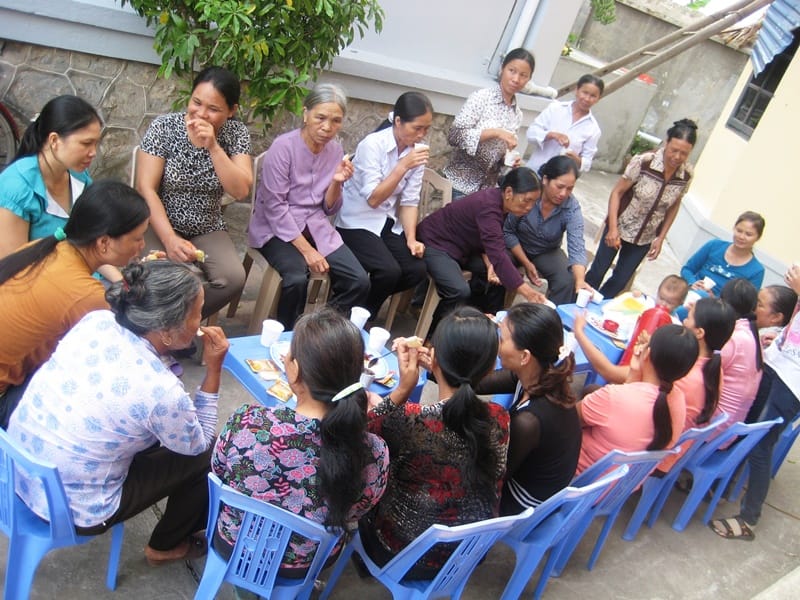It’s All About Relationships: IGE and Vietnam

Two weeks ago, President Obama had a very productive and candid conversation with Vietnam’s President Truong Tan Sang. Both presidents shared their desire to improve relations between Washington and Hanoi, and discussed many difficult topics including the formation of a U.S.-Vietnam Comprehensive Partnership; the Trans-Pacific Partnership (TPP) agreement; increased cooperation on defense, education, science, and technology; war legacy issues; and, the critically important issue of the protection and promotion of human rights.
Prior to President Sang’s visit, many human rights advocates and organizations vocalized their criticism of Vietnam’s human rights record. Such advocates encouraged Obama to utilize this opportunity to place additional pressure on Sang to address these issues. While many of the advocacy groups raised valid points, very few took the time to offer real solutions to the challenges Vietnam faces in these areas.
It is no longer adequate to simply insist that a government take significant action to improve its human rights record. Anyone who has studied human rights or has done human rights advocacy knows that improving human rights can be a lengthy process, and as such, cannot be changed overnight by a few top government officials or one-off policies. Systemic and sustainable change requires the participation of all citizens and national stakeholders, whether that is the small business owner, university professor, rural Buddhist monk, farmer, school teacher, or local police officer. It is true that the government of Vietnam has the power to make laws and policies that can improve human rights, but it can only go so far until the people of Vietnam believe in that law or policy and put it into action. It is also important for the Vietnamese people to participate in the law making and policy implementation process. Everyone plays a critical role in improving human rights, and ensuring that they are implemented effectively from the national to the local level.
The question we are left to ask ourselves is, “What can we do now to move forward?”
To induce someone to change—to the point that they would put this change into action—it is imperative that a foundation of mutual trust and respect exist. To expect otherwise is short sighted and lacks real merit. To build a platform for change on human rights and religious freedom in Vietnam, we must first build a solid relationship. At the Institute for Global Engagement (IGE), one of our core principles is, “Sustaining change comes only through understanding and trust.”
On 25 July, IGE President, Dr. Chris Seiple, met with Chairman Dzung Pham of Vietnam’s Governmental Committee for Religious Affairs (CRA), and President Vu Xuan Hong of the Vietnam Friendship of Organizations (VUFO) to collaborate and brainstorm on future religious freedom projects in Vietnam. Together they discussed education and training programs that would help the Vietnamese people, including religious leaders, understand their rights related to religion. These trainings help religious leaders and government officials understand what it means to be a good citizen, work together on national identity, unity/ harmony, and allow religious communities to play a larger role in the development of society. They also discussed the importance of developing seminaries and religious schools that teach religious leaders how to lead their congregations to contribute to the greater good of Vietnamese society. Finally, they discussed the need to train and form mediation teams comprised of religious leaders and public officials who are trained to intervene and alleviate conflicts/disputes at the local village level before they reach the national level.
This type of engagement is unique—yet uncommon in this part of the world. It helps build a platform where both government and religious communities—two stakeholders who rarely have the opportunity to come together on any issue—emerge as dual agents in an area previously marred by mistrust and conflict. It also positions religious communities as trusted partners to work with their government on religious freedom progress.
This was only made possible because IGE sought to build relationships that were based on trust and respect. As a result, IGE has worked in Vietnam for 10 years in ways that most other nonprofits have not. In 2006, IGE signed the first comprehensive agreement between an American NGO and the Vietnamese government’s Vietnam-USA Society, laying out a roadmap for religious freedom progress in Vietnam. This agreement was recently renewed in December 2012.
From this history of engagement and the development of trusted relationships, IGE is now a trusted partner to Vietnam on issues of religious freedom and is invited to coordinate these conversations at the highest level. Furthermore, IGE has trained over 2,800 government officials and religious leaders on religious freedom and peace-building in Vietnam, providing an environment where the Vietnamese people can participate in the law making and policy implementation process. It is our hope these trainings and projects will catalyze and empower the Vietnamese people to be future religious freedom advocates and peacemakers.
My advice would be for anyone who seriously wants to advocate for change, start with building a relationship based on trust and mutual respect. Then you might be able to see the possibility of real change happen in the future.